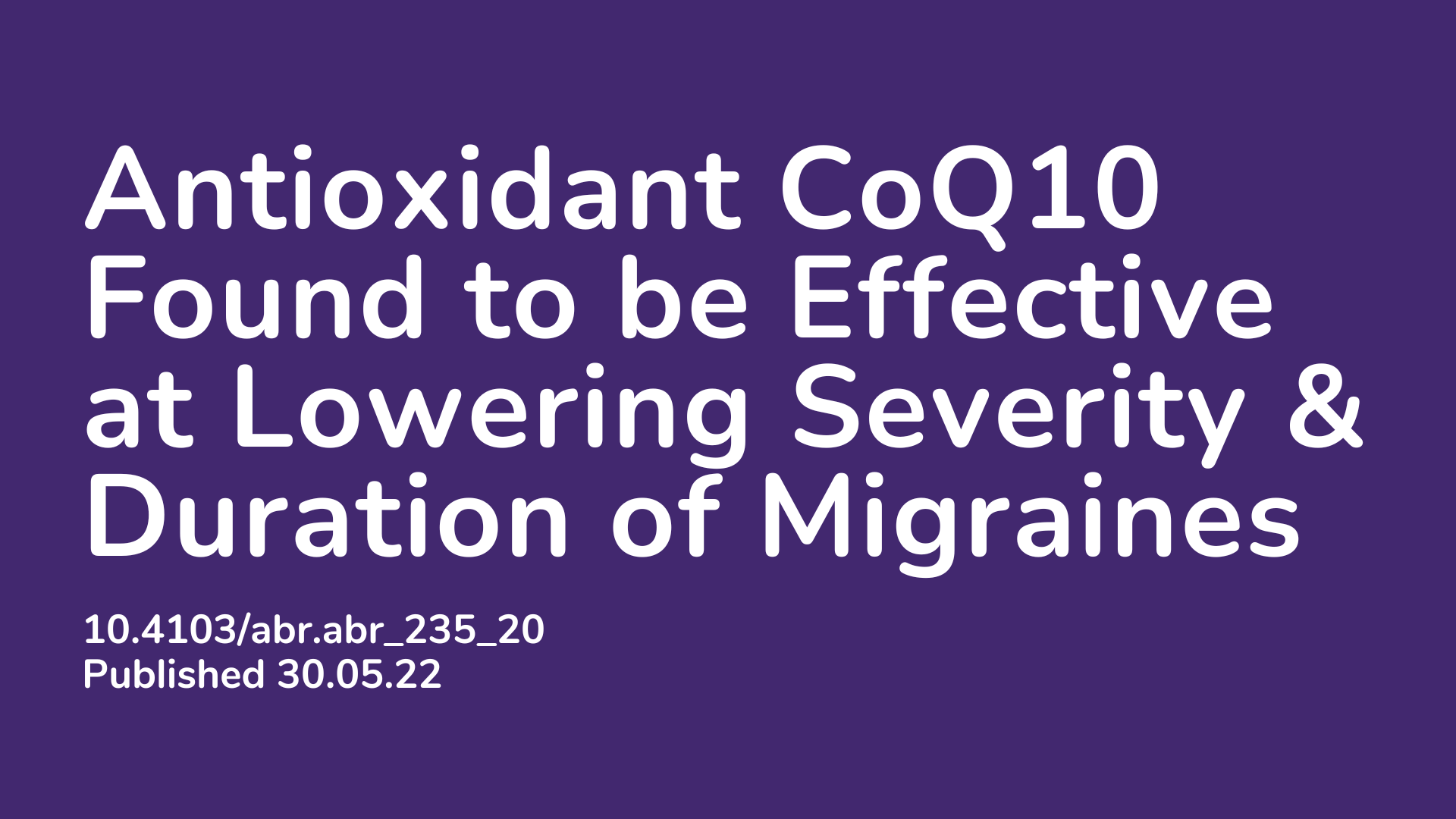Summary: Seventy five percent of children referred to neurologists due to headaches are diagnosed with migraines, making them a significant public health concern. Numerous studies have suggested the use of amitriptyline as the first line treatment, which is a tricyclic antidepressant. However, this drug produces side effects such as drowsiness and cardiac arrhythmias, as well as compliance issues due to only being in tablet form. Research of other treatments such as nutraceuticals including vitamin D, riboflavin, coenzyme Q10 and magnesium has shown promising results and have much fewer side effects. The aim of this paper was to analyse the effect of coenzyme Q10 on the duration, frequency and severity of migraines in comparison with amitriptyline. This randomised controlled trial showed that coenzyme Q10 is effective in lowering the frequency, duration and severity of migraines and can improve a patients quality of life. The study also showed the same results for amitriptyline, however given that coenzyme Q10 has less side effects, it is an optimal choice.
Abstract:
Background: Migraine, one of the most common headaches in children, has a significant impact on children and their family’s quality of life (QoL). There are two approaches for controlling migraine headaches preventative and controlling acute attacks. Several drugs have been used for this purpose, and tricyclic antidepressants were at the top. Amitriptyline has shown not only a desirable effect on controlling the headaches but also some adverse side effects. Recently, finding effective drugs with fewer side effects, become more critical. Among them, nutraceuticals were one of the promising ones.
Materials and Methods: In this randomized clinical trial on 72 patients aged 5–15 years old with diagnosis of migraine based on the International Headache Society criteria, we compare the effectiveness of coenzyme Qten on frequency, duration, and severity of childhood migraine. For comparing the QoL, we used the International PedMIDAS questionnaire.
Results: Coenzyme Qten showed good therapeutic effects in children, especially in long-term use; however, amitriptyline showed more rapid response. After 3 months of treatment, clinical outcomes in the two groups did not significantly differ from each other. Similarly, Children’s QoL increased in the same way. There are more reported side effects in children using amitriptyline compared to coenzyme Qten.
Conclusions: According to results, Co-enzyme Q10, with fewer side effects and comparable therapeutic effects, especially in the long term, could be a good drug for prophylactic treatment of migraine headaches.
Article Publication Date: 30.05.22
DOI: 10.4103/abr.abr_235_20



